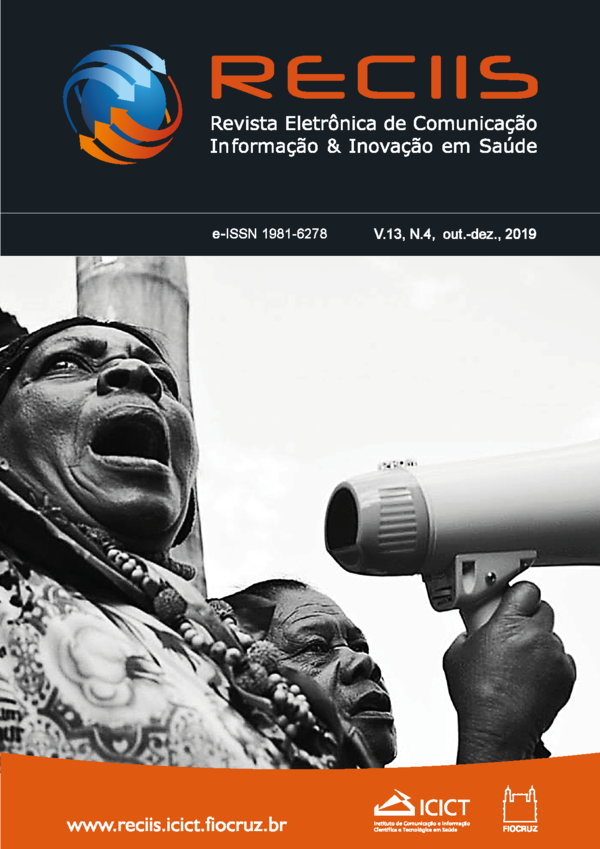Implementation of the Rede Cegonha (Stork Network) in a Regional Health Department in the state of Goiás, Brazil: what do health indicators show about maternal and child care?
DOI:
https://doi.org/10.29397/reciis.v13i4.1595Keywords:
Maternal-child health services, Health status indicators, Maternal mortality, Child mortality, Health care, Woman health.Abstract
Indicators of maternal-child morbidity and mortality are essential in the context of the organization of the Rede Cegonha (Stork Network), within the scope of the Unified Health System (SUS – Sistema Único de Saúde). This network is organized to ensure access, protection and successful resolution, through a model of attention focused on prenatal, delivery and childbirth, puerperium (or postpartum period) and logistic system. This article presents an ecological study of this network in a Regional de Saúde (Regional Health Department) that was carried out using data from the SUS Department of Informatics of the Health Information Systems. An increasing percentage of pregnant women who had seven or more prenatal visits could be observed. However, few pregnant women completed prenatal care because they have not sought for the puerperium consultation. A child mortality rate close to the target set out in the United Nations Sustainable Development Goals was observed. An increase in caesarean sections and a reduction in normal deliveries and at the same time a high maternal mortality were identified. These indicators point to the need to improve the quality of prenatal and delivery care.
Downloads
Published
How to Cite
Issue
Section
License
Author’s rights: The author retains unrestricted rights over his work.
Rights to reuse: Reciis adopts the Creative Commons License, CC BY-NC non-commercial attribution according to the Policy on Open Access to Knowledge by Oswaldo Cruz Foundation. With this license, access, download, copy, print, share, reuse, and distribution of articles is allowed, provided that it is for non-commercial use and with source citation, granting proper authorship credits and reference to Reciis. In such cases, no permission is required from the authors or editors.
Rights of authors’s deposit / self-archiving: The authors are encouraged to deposit the published version, along with the link of their article in Reciis, in institutional repositories.












